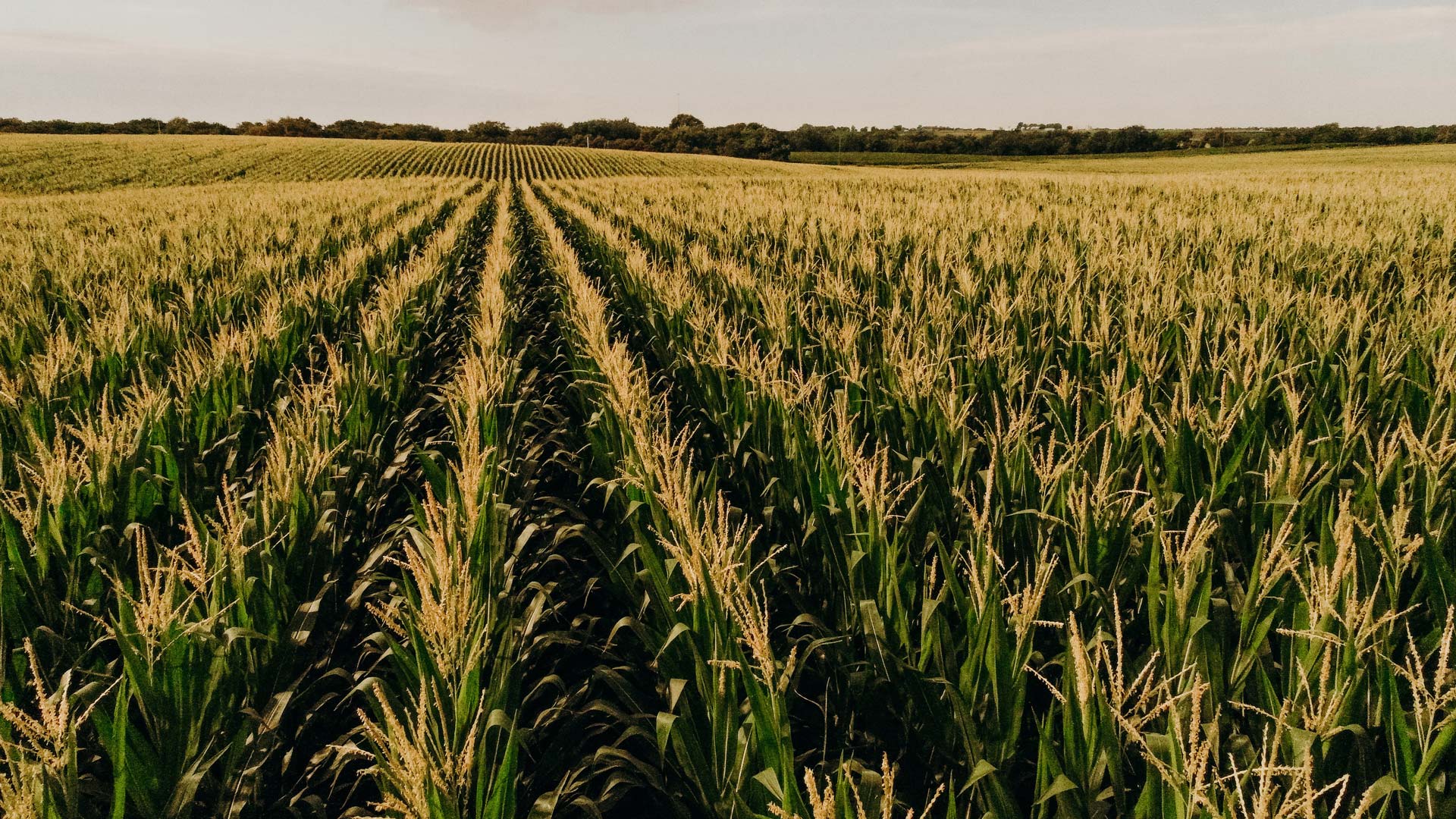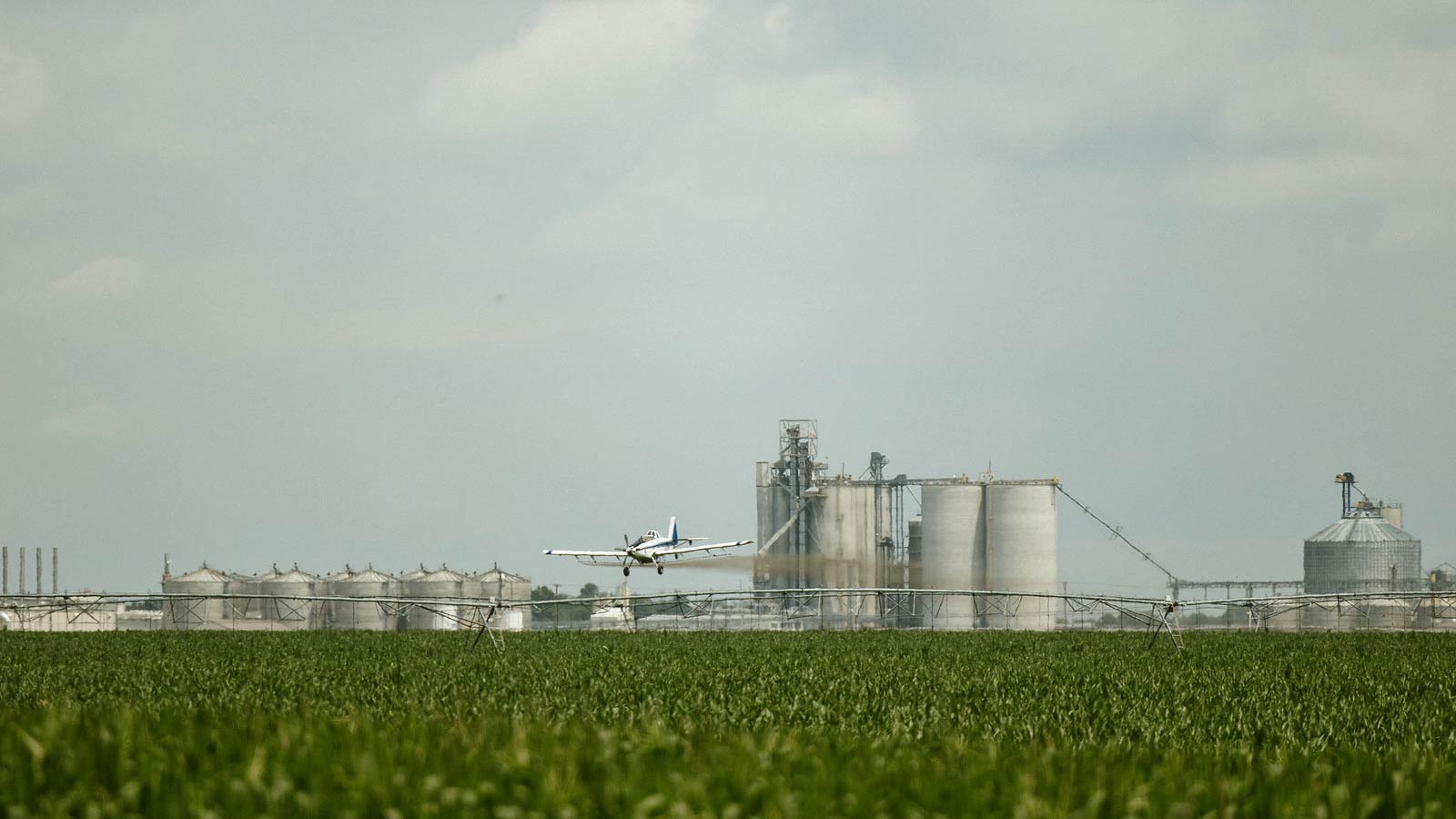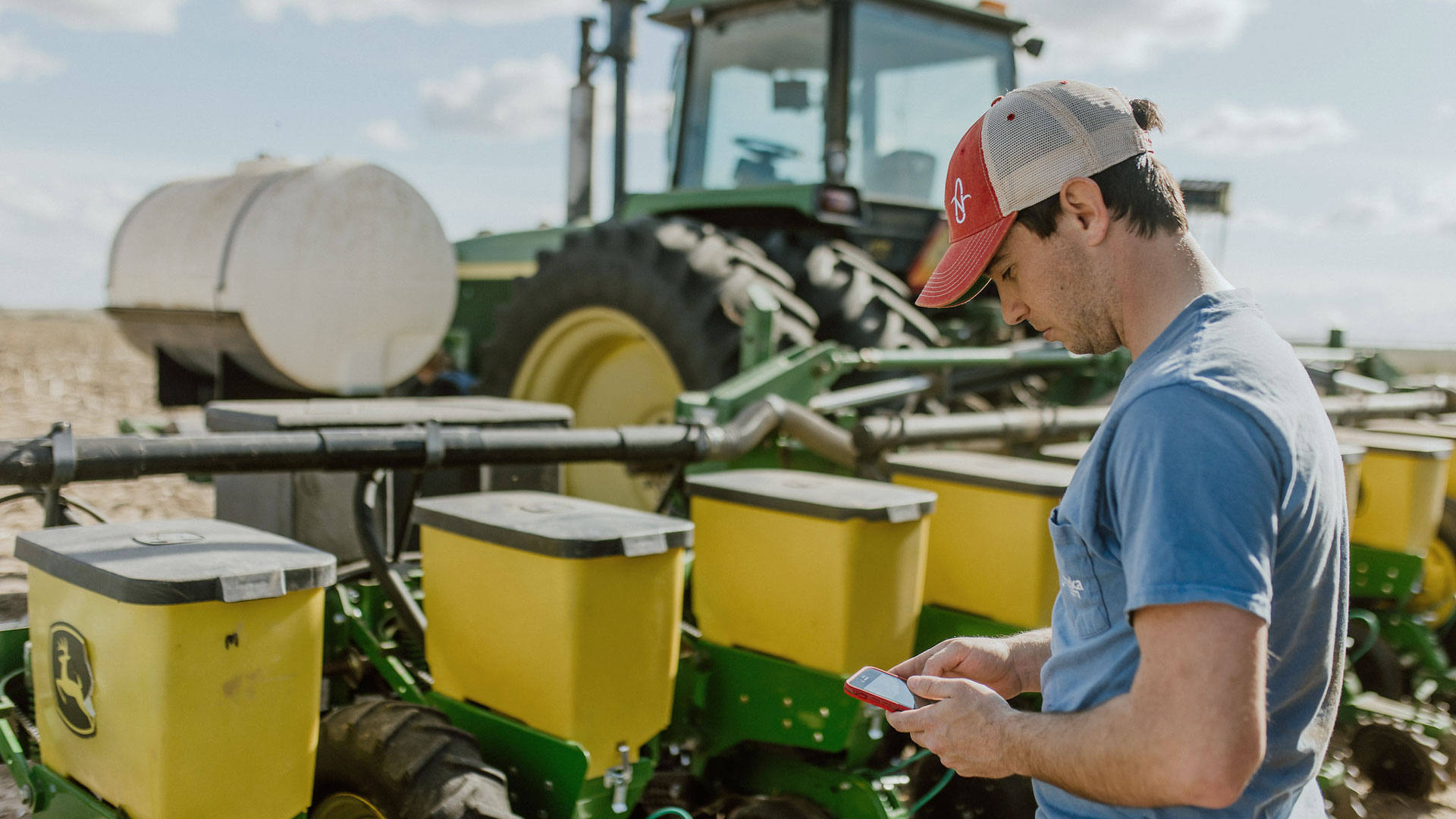Modern agriculture employs a wide array of tools and techniques to cultivate healthy and robust corn, soybeans and other crops.
This includes sophisticated GPS-guided machinery for precision planting, innovative irrigation systems to provide crops with adequate water as well as the responsible and targeted use of pesticides and herbicides to protect the health of the crops.
These tools and techniques make it possible for farmers in Nebraska and around the world to meet the ever-increasing global demand for food. Along with efficient cultivation practices, farmers can use these practices to sustainably meet the demand for food and countless other corn-based products from ethanol to bioplastics.
COMMON Pesticides Used in Farming
Farmers utilize pesticides, anhydrous ammonia and herbicides for several reasons. Just like a homeowner might use a pesticide on their lawn, farmers use pesticides in agriculture to shield crops from pests and disease in order to prevent plant death and yield losses.
There are three main types of pesticides that farmers use:
- Herbicides: A herbicide is a type of pesticide used to kill weeds and other undesirable plants that compete with corn and other crops for nutrients and water.
- Insecticides: An insecticide is a type of pesticide that kills insect predators that eat corn and other crops.
- Fungicides: A fungicide is a variety of pesticide used to protect against and kill fungus that could afflict crops like corn.
Why Pesticides Are Used in Corn Farming
A field of corn is an irresistible target for insects of all kinds. Because of that, it is vulnerable to attack.
One of the many diseases and predators that attack corn include moth larvae called corn borers, which can cause substantial damage by eating through the corn stalks and ears. A fungus known as corn smut can infect plants and turn kernels into bulging, blueish-gray galls. Weeds of all shapes and sizes can infiltrate farm fields and compete with corn seedlings for nutrients.
Pesticides are typically applied during specific stages of crop growth, depending on the targeted pest or disease. The timing of pesticide application may vary, but it is often based on factors such as pest life cycles, weather conditions and crop development stages.
Targeted applications can help minimize pesticide use and reduce any potential environmental impacts. Precision agriculture technologies—including smart farming tools such as GPS-guided equipment and agricultural drone technology—allow farmers to apply pesticides with more accuracy, targeting specific areas where pests or diseases are present. This approach helps optimize pesticide efficacy while promoting sustainability and minimizing overall environmental impact.
What Is Herbicide in Agriculture?
Herbicides are a type of pesticide used in agriculture to kill weeds that threaten the vitality of corn and other crops. Herbicides are applied to agricultural fields to reduce weed competition, allowing better crop growth and maximizing yield potential
There are different types of herbicides used in agriculture, including pre-emergent herbicides applied before weed emergence, post-emergent herbicides applied after weed emergence and selective herbicides designed to target specific types of weeds while leaving the desired crops unharmed.
Selective Herbicides Explained
Whether you’re tending to a farm field or beautifying the lawn in your front yard, killing weeds in a corn field can be a tricky business. The goal is to get rid of the undesirable plants while not harming the grass in the yard or the crops in the field. In both cases, a homeowner or corn farmer might use a selective herbicide—a type of herbicide that kills specific weeds but does not harm the rest of the yard or field crops.
Selective herbicides were developed to address the challenge of weed control without causing damage to the intended plants. Farmers use selective herbicides because they can apply them to a spot or section of their fields without worrying if they will damage the crops. That’s because selective herbicides work by exploiting biological differences between weeds and crops, so they kill weeds but do not harm crops.
How Herbicide Use Affects Agricultural Productivity
The use of herbicides provides several benefits for farmers. They help maintain clean and weed-free fields, preventing weed competition for resources like water, nutrients and sunlight. This allows crops to grow more efficiently, resulting in increased yield and improved quality. Herbicides also help reduce labor costs associated with manual weed removal and mechanical cultivation. In addition, they contribute to soil conservation by minimizing soil erosion caused by excessive tillage.
It is crucial to use herbicides responsibly, following label instructions and best management practices. Adhering to prescribed application rates, timing and safety precautions helps mitigate risks such as off-target movement, environmental impact and the development of herbicide resistance.
What Would Happen if Farmers Didn’t Use Herbicides?
Some people might wonder why farmers don’t just stop using herbicides and other pesticides? If farmers planted their crops, walked away and didn’t come back until it was time to harvest, their fields could become overrun with weeds or chewed up by insects.
In order to keep the crops healthy, if farmers didn’t use herbicides, they may need to hire many workers to remove weeds by hand—a slow and laborious task that would take many manhours and not be practical due to the large size of today’s agricultural fields. This could reduce the amount of corn that farmers are able to grow and also increase labor costs, which would inevitably have to be passed along to the consumer.
Another possible repercussion of farmers not using herbicides would be they would have to frequently pull an implement called a cultivator through their fields to loosen the top layer of soil and physically rip up the weeds growing in between the rows of corn, soybeans or other crops. Repeatedly driving up and down fields in a tractor dragging the cultivator blades through the dirt to remove weeds during the growing season could potentially damage soil structure over time and make the field more susceptible to erosion.
Related Posts
How Precision Agriculture Takes Corn Farming into the Future
Precision agriculture is revolutionizing the way Nebraska corn farmers grow their crops. By using advanced technology and data analytics, growers are able to maximize yields while minimizing waste. This new approach is helping Nebraska [...]




